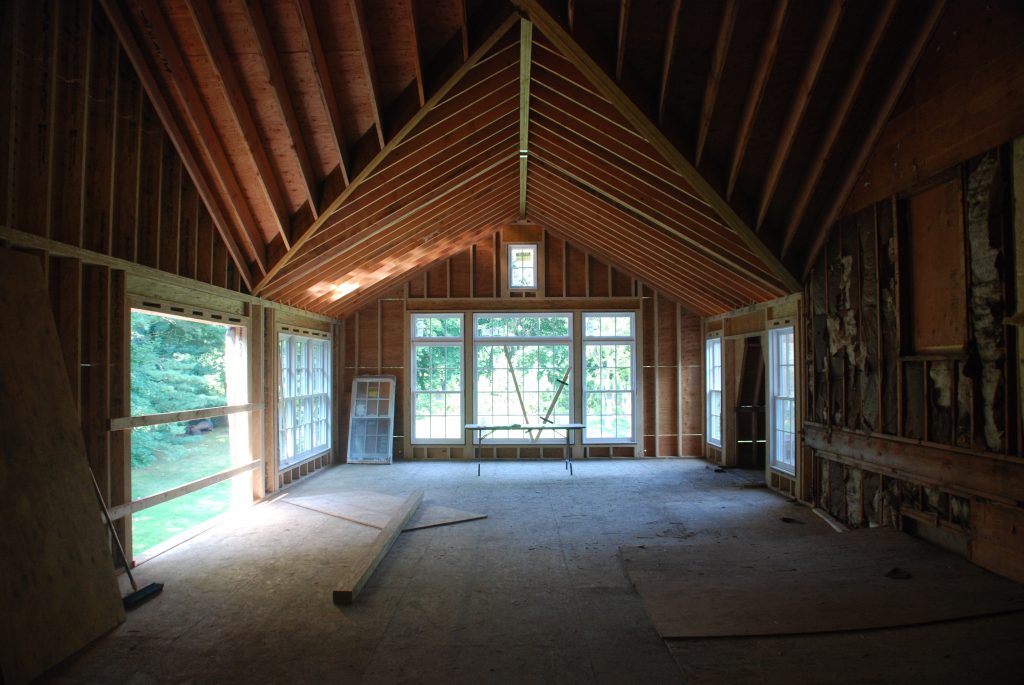
How To Survive a Remodeling Project
Home Remodeling Advice From a Residential Architect in the CT / NY Area:
Numerous things can go wrong once you begin a remodeling project. The biggest problem some homeowners encounter is that they haven’t been through this process before, don’t know what to expect, & weren’t given any advice before diving in.
Being that builders do this daily for many years, they sometimes forget that homeowners haven’t been through this before. The top 4 most troublesome issues tend to be money, the mess, expectations, & communication.
The following list addresses each of these issues & advice on how to survive a remodeling project.
Money:
Remodeling can be very stressful simply based on the amount of money being spent, which can sometimes be very significant. It’s very easy to spend more than expected due to “scope creep,” where the scope of work increases beyond what was initially planned. Staying within your budget can be accomplished by:
· Set aside a contingency fund: Setting aside 10%-15% of your budget for “unexpected surprises” is advisable (like mold, termite damage, rot, substandard work, etc). This contingency fund may also allow you to upgrade to nicer materials, if desired. If your “all-in” budget is $500,000, you should set aside at least $50,000 leaving a target budget of $450,000.
· Select everything in advance: Try to pick out everything before you start construction, as this will help to get a realistic sense of the overall project cost. This especially applies to expensive spaces like kitchens & bathrooms.
· Keep your emotions in check: You need to decide on where to splurge & where to save, & it’s very easy to get carried away when remodeling, wanting the best of everything everywhere. Draw the line when necessary and compromise on expensive products and solutions.
Dealing with the mess:
It’s best to clean up, organize, & simplify before starting your project. You may need to clear entire rooms of all furniture, so now’s a good time to reassess your belongings & purge. With a dumpster on site, it’s that much easier. When going through your treasures, you should organize these into 4 piles… keep it, sell it, give it away, or throw it out.
· Have a Yard Sale: The less you own, the less there is to get in the way & keep moving around.
· Do all demolition at once: Do all demolition at once, then clean up. If you try to stagger the stages you’ll be living in a mess for months.
· Create a retreat: If you’re living through a remodeling project, many areas of your house may be under construction & will be off limits. Make sure you have other parts of your house which are a safe haven from the noise & dust.
· Set up a temporary kitchen: If you’re remodeling a kitchen, you’ll need to set up a temporary kitchen somewhere else in the house. At a minimum, you’ll need a refrigerator, a microwave, toaster oven, prep area, & somewhere to wash dishes. Kitchen remodels are best done during the summer months when it’s easily solved by “cook out, eat out, & take out.”
Expectations:
All builders will agree that managing a client’s expectations is crucial to the success of a project. It’s the builder’s responsibility to help you understand what to expect such as the overall cost, how long it’s going to take, what the process is, & what to expect at various times.
Maybe you won’t have heat or water for a few days. Maybe you’ll need to move out of the house for a few days or weeks. Maybe there’ll be a little downtime & nothing’s getting done for a few days while waiting on materials or subcontractors.
If you’re aware of these, you shouldn’t have a problem if they arise. If not told about them, they can surely become big issues. If you have certain expectations (such as minimizing the mess & the dust, hours of work, progress, overall job site cleanliness), it’s your responsibility to share those with the builder so he’s aware & so he can hopefully accommodate your request.
Communication:
Communication is key in any relationship, whether it be your significant other or the builder. A weekly site meeting with the builder is recommended so you can discuss what’s been done, what’s about to be done, what issues need to be discussed, what decisions need to be made, & what materials need to be selected, ordered, & delivered by.
· Assume nothing: Making assumptions only gets you in trouble. Don’t assume your budget will cover what you’ve planned, as costs can spiral out of control for various reasons. Don’t assume the builder, his employees or subcontractors have the same vision as you. No one is a mind reader so speak up, be clear, and talk about what you want constantly & don’t let problems fester. The longer you wait, the harder it becomes to correct or change an issue.
· There are no stupid questions: Homeowners don’t ask nearly enough questions. If you don’t understand or if you feel something is wrong, just ask.
DeMotte Architects · Connecticut Architect · New York Architect · Home Design
Home remodels and additions can be stressful, but the right team can help keep your project on time and on budget. Our goal at DeMotte Architects is to bring your dream home to life, which is why we specialize in custom homes, additions, and renovations of all styles (classic & contemporary). View our projects on Houzz or contact us for a free consultation for your CT or NY home project.

0 comments